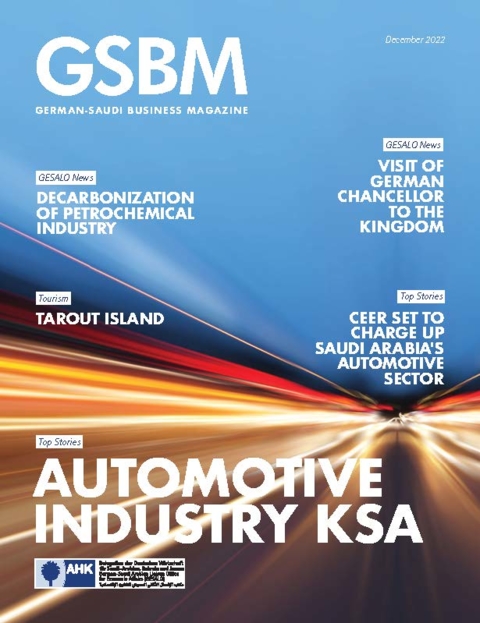Market Entry Saudi Arabia & Bahrain
Would you like to gain a foothold in the Saudi or Bahraini market and open up new business opportunities? Plan your market...
View more

Groundbreaking partnerships between global corporations and Saudi companies only broaden the potential for the automative industry in the region. Partnerships between F1 and SABIC, Mercedes and Juffali offer to align the country with more sustainable strategies, create opportunities for the introduction of over 500,000 new jobs, and contribute significantly to Vision 2030 and the advancement of large-scale mega city projects such as NEOM.
Arguably one of the most significant automotive industrial projects is CEER Motor Company, founded by Saudi Arabia’s Crown Prince Prince Mohammed bin Salman bin Abdulaziz. With plans to stand as a pillar for electric vehicle production, CEER is projected to directly contribute USD 8 billion to Saudi Arabia’s GDP by 2034. CEER also acts as the regions first “made in Saudi” cars, opening a global opportunity for the Kingdom and offering a large contribution to the nation’s Saudi Green Initiative (SGI) to achieve net zero emissions by 2060.
More manufacturers are expected to set up facilities, with one example being the California-based electric vehicle manufacturer Lucid Motors. In May 2022, Lucid Motors awarded local construction company, Al Bawani, a contract worth USD 640 million to build an electric vehicle plant. With large investments being made into Saudi Arabia, forecasts estimate the number of electric vehicles will range between 1 and 2 million in 2030.
Global leaders in the chemical industry, SABIC, are collaborating with Formula E in a major long-term deal which will allow for the integration of their sustainable solutions. F1 is also continuing work on Qiddiya Speed Park, a new racetrack and mega-city development project under Vision 2030. Until the completion of the Speed Park, currently scheduled for 2027, the Saudi Arabian Grand Prix will continue to be hosted at the Jeddah Corniche Circuit.
Mercedes and Juffali Commercial Vehicles are playing a huge role in the development in NEOM, one of the world's most ambitious mega cities.
Given the current trend of automotive innovation in the Kingdom – culminated in the launch of the e-car brand Ceer last month – the GSBM issue December 2022 sheds light on the sector’s supply chains and implementation on the ground. Ceer is estimated to create up to 30,000 jobs and to contribute $8bn to Saudi economy by 2034.
Learn more about the automotive sector
Would you like to gain a foothold in the Saudi or Bahraini market and open up new business opportunities? Plan your market...
View moreThe German-Saudi Business Magazine (GSBM) is released two times a year with an edition of 1,500 copies per issue in English.
View moreHead of Market Entry - DEinternational DEinternational
+966 55 703 0376 / +966 920005863 Ext.: 107 alkutbi@ahk-arabia.com saudiarabien.ahk.deHead of German Desk Western Province DEinternational
+966 53 929 0004 / +966 122398000 Ext.: 8197 basyouni@ahk-arabia.com saudiarabien.ahk.deMarket Entry Consultant DEinternational
+966 55 696 1116 / +966 920005863 Ext.: 103 giese@ahk-arabia.com saudiarabien.ahk.de




